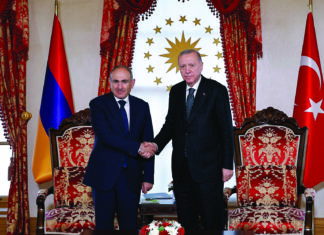By Evren Balta
ISTANBUL (Middle East Eye) — Turkish citizens are getting ready to vote in presidential and parliamentary elections on May 14 for what may be the nation’s most critical, and certainly one of the most competitive, ballots of the last two decades. Can the Nation Alliance, led by the Republican People’s Party (CHP), defeat the People’s Alliance, led by the ruling Justice and Development Party (AKP)?
Voters will choose the president in a two-round election from among four candidates. They will also elect the parliament. Yet, while CHP leader Kemal Kilicdaroglu is several points ahead of President Recep Tayyip Erdogan in recent polls, the numbers are far from conclusive, with many voters still undecided.
Nonetheless, it is quite clear that in its 21 years of rule, the AKP has never come this close to losing an election.
Turkey’s transition to a super-presidential system in 2018 is closely correlated with an increased chance of incumbents losing power. The switch created two substantial transformations in Turkish politics.
The first was institutional, giving party politics and the electoral system a majoritarian logic that encouraged coalition-building among parties. In addition, Turkish electoral law was modified to make it possible for political parties to participate in elections by formally establishing coalitions. Coalitions also enabled smaller political parties to get around Turkey’s high electoral threshold.








